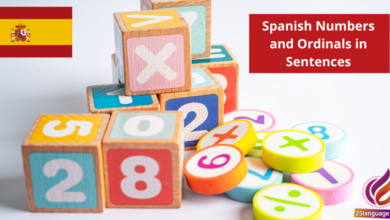Spanish Words with Double Meanings Based on Context

Spanish is a rich and vibrant language, where the meanings of words can shift dramatically depending on context. Imagine telling a friend that a “banco” is not just a bank where you keep money, but also a bench to sit on! In today’s lesson, we’ll explore captivating words that wear multiple hats, unlocking their various meanings to enhance your communication skills. Get ready to dive into the nuances of Spanish and take your language abilities to the next level!
Exploring Contextual Nuances in spanish Vocabulary
Understanding the nuances of Spanish vocabulary requires grasping the cultural and situational contexts in which certain words are used. For instance, the word “coger” means “to take” in many Spanish-speaking countries; however, in some nations such as Mexico, it is considered slang with a sexual connotation. Understanding local usage is crucial, as it can affect communication. when learning vocabulary, consider the following:
- Context: Words may have different meanings based on the country.
- cultural Sensitivity: Be aware of potential misunderstandings in informal conversations.
- Variability: Synonyms can exist but may carry different connotations.
Another example revolves around the use of “pescado” and “pez.” Both mean “fish,” but “pescado” refers to fish that has been caught and is ready to be eaten, while “pez” refers to a live fish. This distinction can shift the conversation entirely, so it’s essential to use them accurately. Remember these important notes about vocabulary:
- Grammatical gender plays a important role (e.g., “el pez” vs. “el pescado”).
- specificity affects meaning; choose words that align with your intent.
- Regional dialects may alter the accepted vocabulary.
| Spanish Example | Rule/Explanation | English Translation |
|---|---|---|
| ¿Puedes coger esto? | “Coger” is standard in spain; avoid it in Mexico. | Can you take this? |
| El pescado es delicioso. | “Pescado” refers to fish as food. | The fish is appetizing. |
| Un pez nada en el acuario. | “Pez” refers to a live fish. | A fish swims in the aquarium. |
Unlocking the Dual Meanings of Spanish Words
Many Spanish words have dual meanings depending on their context, frequently enough leading to confusion for english-speaking learners. Understanding the context in which a word is used can help you decipher its intended meaning.As a notable example, the word “banco” can mean both “bank” (a financial institution) and “bench” (for sitting). Another example is “vela”, which can signify a “candle” (for light or ambiance) or the “sail” (used on a boat). When learning these words, consider their usage in sentences to clarify meaning:
- Voy al banco a retirar dinero. (I am going to the bank to withdraw money.)
- Ella se sentó en el banco del parque. (She sat on the bench in the park.)
- Encendí una vela para la cena. (I lit a candle for dinner.)
- La vela del barco estaba izada. (The sail of the boat was raised.)
Furthermore, certain words can change their meaning based on their grammatical use, such as verbs in different tenses or forms. Take the verb “poder”, which means “to be able to”. Its meaning might shift based on context: “Puedo ir” translates to “I can go”, indicating ability, while “No puedo ir” means “I cannot go”, expressing inability. To illustrate,consider the table below that encapsulates some of these dual-meaning words:
| Spanish Word | Context 1 | Translation 1 | Context 2 | Translation 2 |
|---|---|---|---|---|
| mesa | Mesa de comedor | Dining table | Mesa de trabajo | Work table |
| copa | Copa de vino | Wine glass | Copa del mundo | World Cup |
| cortar | Cortar el papel | to cut paper | Cortar la luz | To cut the light |
Navigating Ambiguity: Understanding Context in Spanish
In Spanish,context plays a critical role in conveying meaning,particularly when dealing with homonyms and verb conjugations. for instance, the word “banco” can refer to either a “bank” or a “bench” depending on the context. When speaking or writing, consider the surrounding words to clarify your intent. Another example is the verb “salir,” which means “to leave” or “to go out.” Depending on the phrases it accompanies, such as “salir de casa” (to leave the house) or “salir con amigos” (to go out with friends), the meaning varies. Pay attention to the context to ensure your message is understood accurately.
- Homonyms: Words that have the same spelling or pronunciation but different meanings.
- Verb Conjugations: Conjugated verbs can change meaning based on their subject-“tú sales” (you leave) versus “él sale” (he leaves).
| Spanish Example | Context Explanation | English Translation |
|---|---|---|
| banco | Context clarifies whether it refers to a financial institution or a seat. | bank / bench |
| salir de casa | clearly indicates leaving a location. | to leave the house |
| salir con amigos | Shows a social activity, differentiating its meaning. | to go out with friends |
Practical Insights into Context-dependent Spanish Terms
Understanding context-dependent terms in Spanish is crucial for effective communication. Many words in Spanish can have different meanings based on the situation or region. For instance, the word “papa” can refer to “potato” in most Spanish-speaking countries, but in others, particularly in certain Latin American countries, it can mean “dad.” To aid comprehension, remember that context is king; the surrounding words often clarify the intended meaning.Here are some key points to consider:
- Regional Variations: Terms may differ based on region. Example: “popote” (straw) in Mexico vs. “sorbete” in some South American countries.
- Multiple Meanings: The same word can mean different things.Such as, “banco” means “bank,” but also “bench.”
- Colloquialisms: Slang terms can be vrey different from formal language. As a notable example, “chamba” refers to “work” or “job” in casual conversation.
Another important aspect is the use of verbs that change meaning with the prepositions that follow them. For example, the verb “pensar” means “to think,” but when used with “en”, as in “pensar en”, it means “to think about.” Conversely, “pensar que” means “to think that.” Similarly, “encontrar” means “to find,” but with “con”, as in “encontrar con”, it means “to meet.” This can be summarized in the following table:
| Spanish Term | Rule/meaning | English Translation |
|---|---|---|
| pensar en | to think about | think about |
| pensar que | to think that | think that |
| encontrar | to find | find |
| encontrar con | to meet | meet |
To Conclude
hoy hemos explorado el fascinante mundo de las palabras en español que tienen significados dobles dependiendo del contexto. Hemos aprendido que el conocimiento del contexto es essential para comprender y comunicar eficazmente en un nuevo idioma. Desde palabras como “banco,” que puede referirse a una entidad financiera o a un asiento en el parque, hasta “vela,” que puede ser una fuente de luz o una referencia a navegar, cada palabra nos brinda una oportunidad única para enriquecer nuestro vocabulario y habilidades comunicativas.Recuerden que el español, como cualquier lengua viva, está lleno de matices y sutilezas. Al practicar y estar atentos al contexto en el que se usan las palabras,no solo mejorarán su comprensión,sino que también se conectarán de manera más profunda con hablantes nativos y la cultura hispanohablante.
así que los animo a que busquen ejemplos en su vida cotidiana, lean más en español, y no duden en experimentar con el idioma. Cada paso que den para familiarizarse con estas palabras de significados múltiples es un avance importante en su camino hacia la fluidez. ¡Sigan aprendiendo y disfrutando del maravilloso viaje del aprendizaje del español! ¡Hasta la próxima!





























